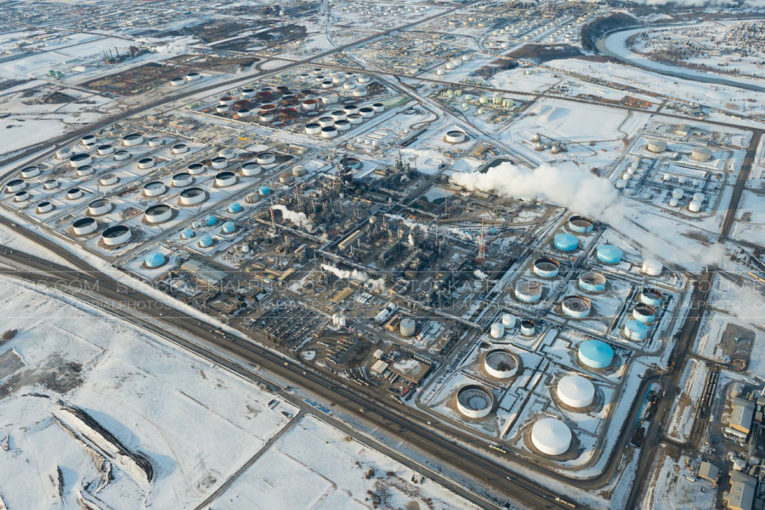
Canadian oil producers and refiners have cut processing rates this week as extreme cold weather grips Western Canada, traders familiar with the matter said on Friday.Cold weather has spread across western Canada this week. In Edmonton, the capital of Canada’s main oil-producing province, Alberta, temperatures dropped to minus 36 degrees Celsius (minus 33 Fahrenheit) on Wednesday, according to Environment Canada.
Syncrude, one of the largest producers of crude oil from Canada’s oil sands, as well as North West Refining (NWR), which operates the Sturgeon refinery, have declared force majeure, two traders familiar with the matter said.
Force majeure is a declaration that unforeseeable circumstances prevented a party from fulfilling a contract.
Syncrude is a joint venture majority owned by Suncor Energy Inc , with minority stakes held by Imperial Oil Ltd and others. It can produce up to 360,000 barrels per day, upgrading thick bitumen to light oil. A spokeswoman for the Suncor did not respond to a request for comment.
NWR did not respond to a request for comment.
Meanwhile, Shell Canada’s Scotford facility is operating at reduced rates, two sources said. The Shell Scotford Complex consists of a bitumen upgrader, oil refinery, and chemicals plant. Shell declined to comment.
“We think the reduced runs are due to upgraders being short natural gas. Nat gas receipts are down by about 1-1.5 billion cubic feet per day (bcfd) due to freeze-offs,” one source at a producer said.
Upgraders need natural gas to create steam to produce the hydrogen that converts bitumen into synthetic crude oil.
The weather-related disruptions are the latest in a series of issues to hit the Canadian oil market. Inventories are already at record highs due to a recent outage on the Keystone pipeline and a Canadian National rail strike.
High inventories are weighing on prices. The discount for Western Canada Select (WCS) heavy blend crude for February delivery in Hardisty, Alberta widened to the biggest since December 2018 versus U.S. benchmark West Texas Intermediate (WTI) crude this week.
Share This:
You can read more of the news on source



